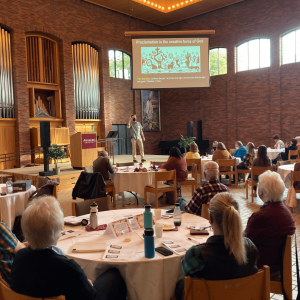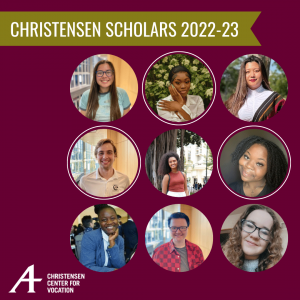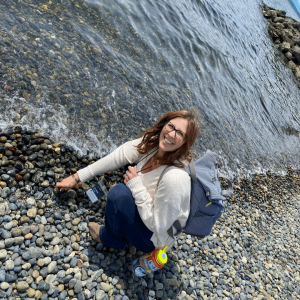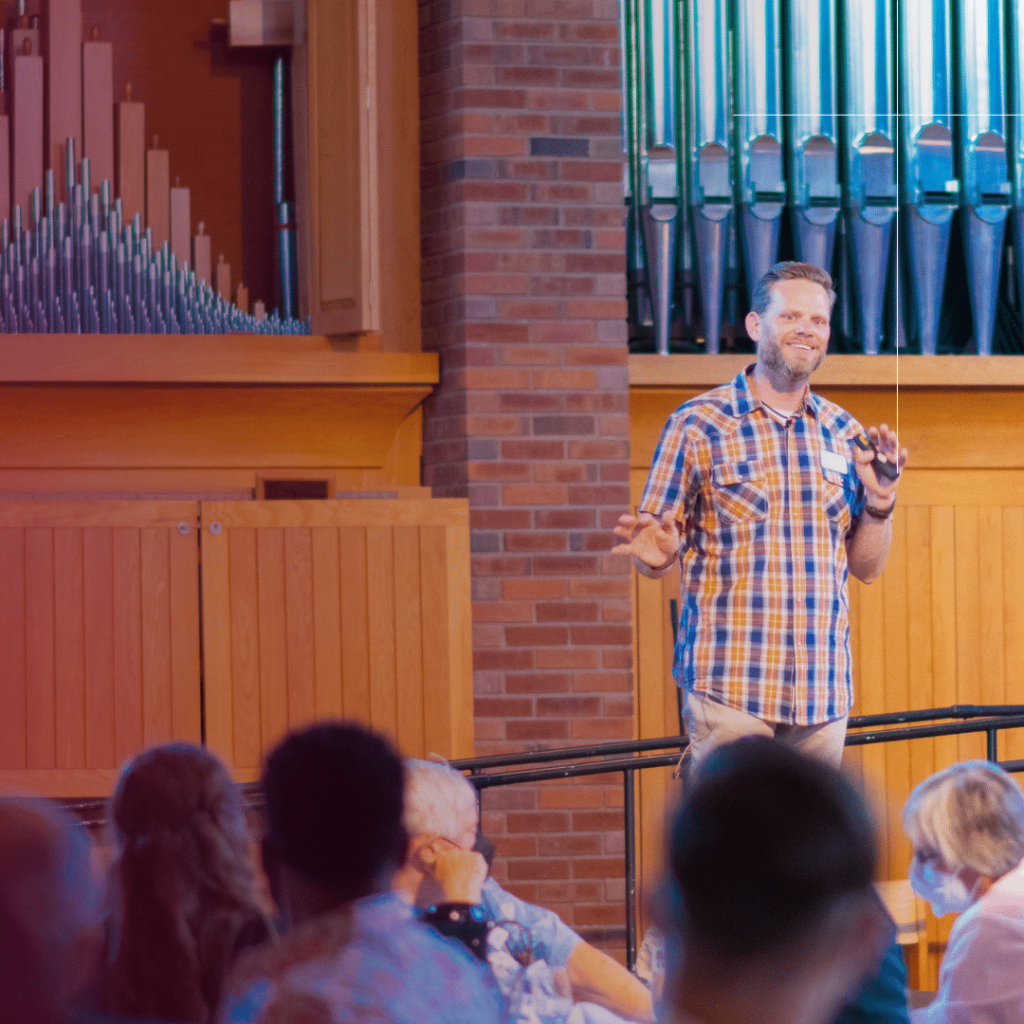Vocation is a term we use a lot around Augsburg. It can be vague. It can mean different things to different people. It can feel elusive and slippery.
An attempt to explain vocation by Jeremy Myers: “You have probably heard the word vocation used to talk about one’s job. It is sometimes used to describe post-secondary educational institutions designed to train individuals for certain trades such as electrician, welder, plumber, carpenter, mechanic, etc. We use the term differently at Augsburg. It can be associated with your job, but it is also much more than that. Vocation is the way you are equipped, empowered, called, and driven to make our world a better place for all living things.”
On most 2nd and 4th Tuesdays of the month, some of our favorite members of Augsburg University’s staff and faculty share their stories of their own vocations during chapel worship. Vocation is all around us, lived out in the here and now and in all departments and spaces at Augsburg. Together we can start uncovering vocation in all our lives. Learn more about Vocation here.
We have been grateful to the staff and faculty who are willing to share their stories with our community. We are especially grateful to those who have already shared their stories the past two months. Paula O’Loughlin, Mike Grewe, Najeeba Syeed and Kao Nou Moua.
We hope you will join us this coming Tuesday, December 6th for our final vocation chapel of the year, “We Die, We Break, We Love A Jewish Story of Call and Response” Dr. Audrey Lensmire.
Check out the recording of Kao Nou Moua’s vocation below and the past vocation chapels in our recent blog posts.
Kao Nou Moua:
“For some of us, our gifts and skills are still budding. For others, our gifts are in full bloom. And for others, our gifts are giving and giving. No matter what stage of budding we are, keep turning yourself out, and into the world. It’s amazing to realize that what the world needs is just the very thing you’re really good at.”




 This fall, the theme in Campus Ministry is “Uncovering the Mystery”, a theme that in itself allows space for multiple meanings: holding space for Scripture, learning from one another in community, and practicing listening deeply, to name a few. But it also encourages us to explore some big questions together. Does something need to be uncovered in our lives in order to live into God’s call more fully? How might we make space for new wisdom to take root, to reveal what has felt hidden? Will something about our vocation be made clearer to us this year? Maybe sitting in mystery together can allow for new understandings, as well as a comfort with the unknown.
This fall, the theme in Campus Ministry is “Uncovering the Mystery”, a theme that in itself allows space for multiple meanings: holding space for Scripture, learning from one another in community, and practicing listening deeply, to name a few. But it also encourages us to explore some big questions together. Does something need to be uncovered in our lives in order to live into God’s call more fully? How might we make space for new wisdom to take root, to reveal what has felt hidden? Will something about our vocation be made clearer to us this year? Maybe sitting in mystery together can allow for new understandings, as well as a comfort with the unknown.  The theme of “Uncovering the Mystery” similarly invites us to come closer and sit together in life and faith’s countless question marks, in the hope that new understanding and new life is just around the corner, waiting to be revealed. We’re so happy to welcome students back to campus this fall, and welcome all to come be a part of all that’s going on in campus ministries!
The theme of “Uncovering the Mystery” similarly invites us to come closer and sit together in life and faith’s countless question marks, in the hope that new understanding and new life is just around the corner, waiting to be revealed. We’re so happy to welcome students back to campus this fall, and welcome all to come be a part of all that’s going on in campus ministries! 

